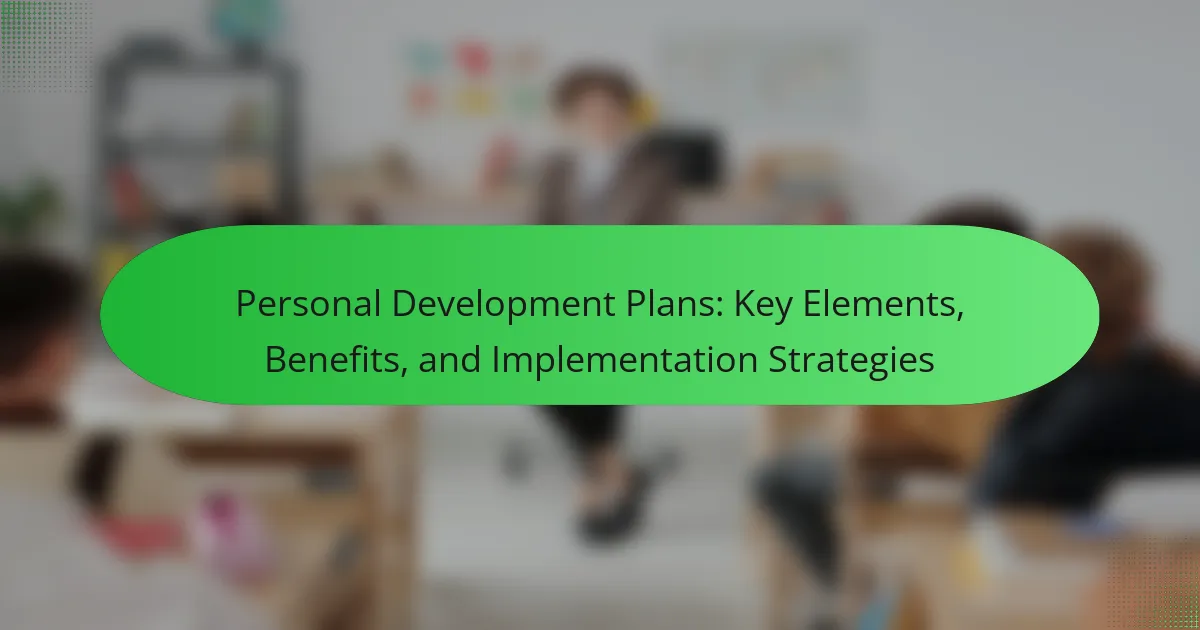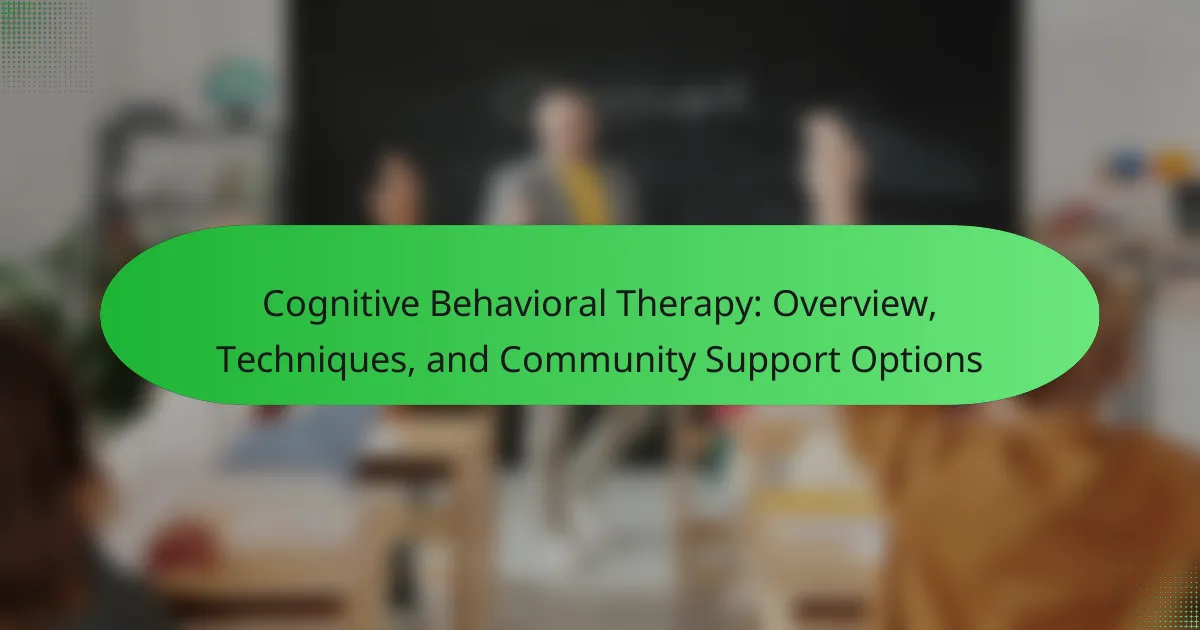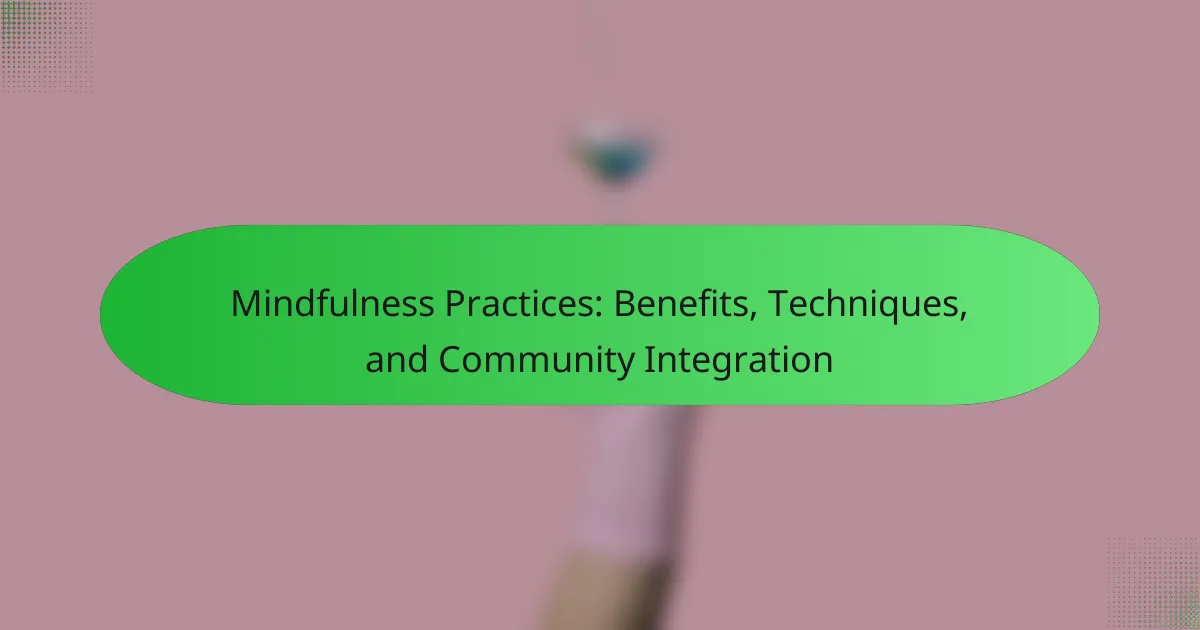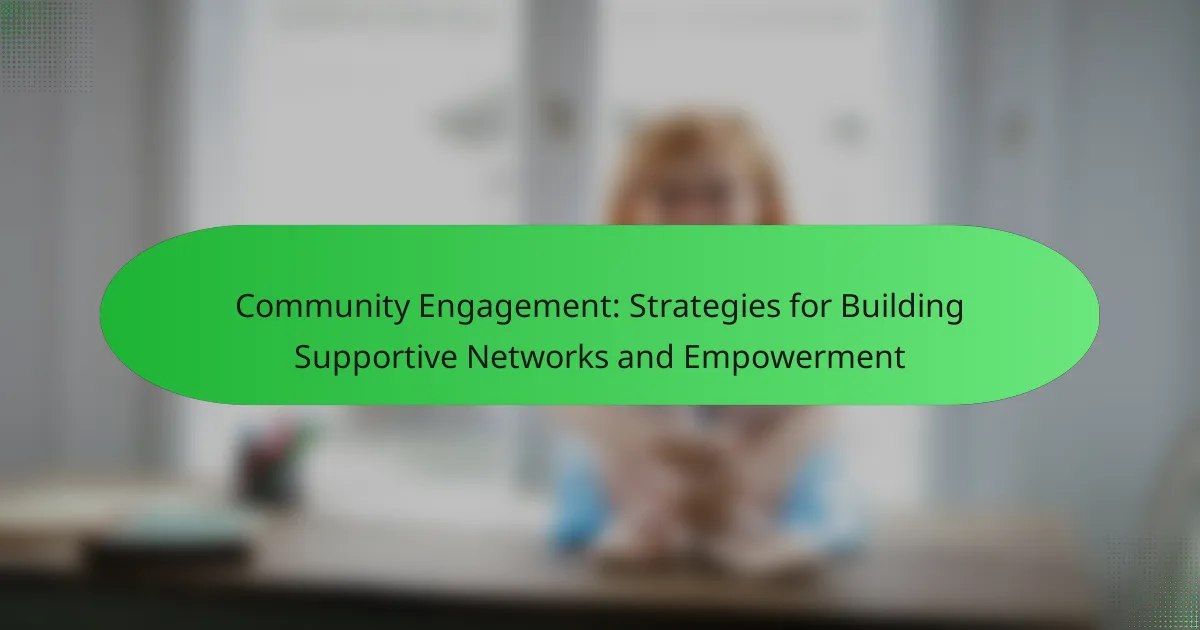Volunteering empowers individuals by enhancing skills, building confidence, and expanding networks. It offers diverse opportunities across regions, contributing to community development and well-being. Volunteers face unique challenges based on cultural contexts and commitment duration, impacting their overall experience. Engaging in various sectors, such as healthcare and education, fosters personal growth and strengthens community ties.
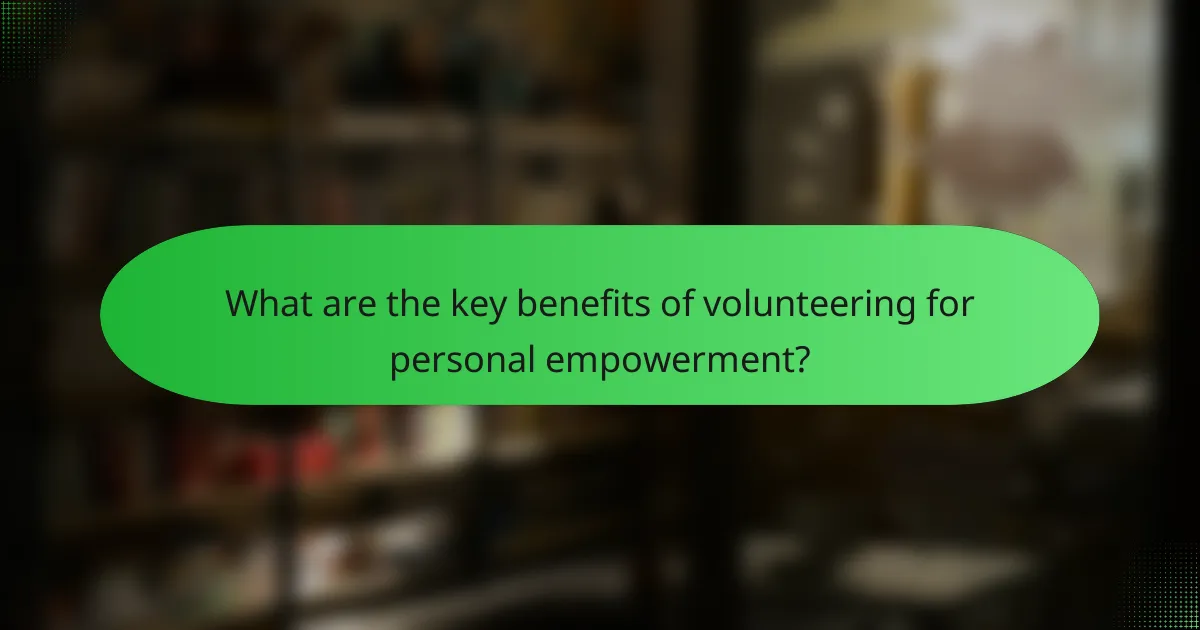
What are the key benefits of volunteering for personal empowerment?
Volunteering fosters personal empowerment by enhancing skills, building confidence, and expanding networks. Engaging in community service leads to a sense of purpose and fulfillment. It also promotes empathy and social awareness, enriching personal growth. Studies show that 70% of volunteers report increased self-esteem and improved mental health.
How does volunteering enhance self-esteem and confidence?
Volunteering significantly enhances self-esteem and confidence by providing individuals with a sense of purpose and accomplishment. Engaging in community service fosters new skills and social connections, which contribute to personal growth. Studies indicate that volunteers often experience improved mental health and increased feelings of self-worth. Furthermore, the unique attribute of volunteering—its ability to create a supportive network—further boosts confidence through shared experiences and collective goals.
In what ways does volunteering contribute to skill development?
Volunteering enhances skill development through hands-on experiences, networking opportunities, and personal growth. Participants gain practical skills relevant to their career paths, such as leadership, teamwork, and communication. Engaging in diverse projects fosters adaptability and problem-solving abilities. Additionally, volunteering boosts confidence and can lead to new career opportunities, reinforcing the unique attribute of personal empowerment.
Why is networking through volunteering important for career growth?
Networking through volunteering is crucial for career growth as it fosters connections, enhances skills, and builds community impact. Engaging in volunteer work allows individuals to meet professionals in their field, leading to potential job opportunities. It also helps develop soft skills like teamwork and communication, which are highly valued by employers. Additionally, volunteering can showcase one’s commitment to social causes, enhancing personal branding. As a result, individuals who volunteer often find themselves with a broader professional network and increased career prospects.

How can volunteering opportunities vary by region?
Volunteering opportunities can differ significantly by region due to local needs, cultural values, and available resources. Urban areas may offer diverse opportunities in education and healthcare, while rural regions often focus on environmental conservation and community development. For example, coastal regions may prioritize marine conservation initiatives, whereas mountainous areas might emphasize wildlife protection. The types of organizations and their missions reflect these regional characteristics, impacting community engagement and empowerment through volunteering.
Which organizations are leading volunteer initiatives in different countries?
Leading organizations in volunteer initiatives globally include the United Nations Volunteers (UNV), Peace Corps, Habitat for Humanity, and VolunteerMatch. These organizations empower communities through various programs and projects, enhancing social cohesion and development. For instance, UNV promotes volunteerism as a means to achieve sustainable development goals. Peace Corps focuses on grassroots development, while Habitat for Humanity builds homes in partnership with communities. VolunteerMatch connects individuals with local opportunities, fostering civic engagement. Each organization contributes uniquely to community empowerment through volunteering.
What types of volunteer work are most popular in urban versus rural areas?
Volunteer work in urban areas often focuses on social services, education, and environmental initiatives, while rural areas emphasize agricultural support, community development, and conservation efforts. Urban volunteers may engage in food banks and youth mentorship, whereas rural volunteers often participate in local farming cooperatives and habitat restoration projects. The unique attribute of urban volunteering is its diversity of programs, while rural volunteering is characterized by a strong community connection. Both settings provide opportunities for empowerment and community impact through collective effort.
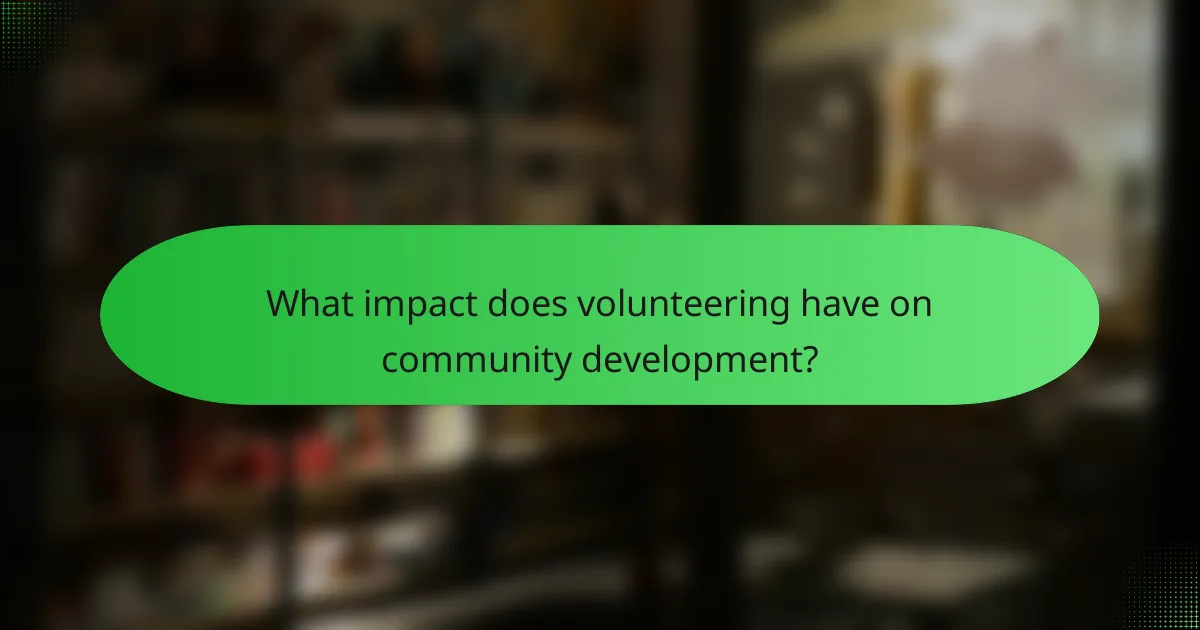
What impact does volunteering have on community development?
Volunteering significantly enhances community development by fostering social cohesion, building skills, and addressing local needs. It empowers individuals, creating a sense of ownership and responsibility toward their community.
Volunteers contribute to various projects, from education to environmental conservation, which directly improve community well-being. For instance, studies show that communities with active volunteer programs experience increased trust and collaboration among residents.
Moreover, volunteering provides opportunities for personal growth, enabling individuals to develop leadership skills and professional networks. This, in turn, can lead to economic improvements as more engaged citizens advocate for local resources and initiatives.
As a result, the impact of volunteering extends beyond immediate benefits, creating lasting change and resilience within communities.
How does volunteering address local social issues?
Volunteering effectively addresses local social issues by fostering community engagement and providing essential support. It empowers individuals to contribute positively, enhancing social cohesion and addressing specific needs like education, healthcare, and environmental sustainability. Through volunteer efforts, communities gain access to resources and skills that can lead to lasting change. For example, local food banks rely on volunteers to distribute food to those in need, directly combating hunger. Additionally, volunteering cultivates leadership skills and personal growth, creating a cycle of empowerment that benefits both individuals and the community as a whole.
What role does volunteering play in fostering community cohesion?
Volunteering plays a crucial role in fostering community cohesion by bringing people together for common goals. It encourages social connections and mutual support among diverse groups. Volunteers often develop a sense of belonging, which strengthens community ties. Research indicates that communities with active volunteer programs report higher levels of trust and collaboration among residents. This engagement fosters inclusivity and encourages individuals to contribute to local initiatives, enhancing overall community resilience.

What are the challenges faced by volunteers in different cultural contexts?
Volunteers face various challenges in different cultural contexts, including language barriers, differing social norms, and varying levels of community engagement. These factors can hinder effective communication and collaboration, impacting the overall volunteer experience. Additionally, cultural misunderstandings can lead to conflicts or misinterpretations of intentions, which may affect project outcomes. Adapting to diverse cultural expectations requires flexibility and awareness from volunteers to foster positive community impact.
How can cultural differences influence volunteer experiences?
Cultural differences significantly shape volunteer experiences by influencing motivations, communication styles, and community expectations. Volunteers from diverse backgrounds may approach tasks differently, impacting collaboration and project outcomes.
For instance, cultural values affect how individuals perceive service and engagement. In collectivist cultures, group harmony and consensus are prioritized, while individualistic cultures may emphasize personal achievement. This can lead to varying levels of participation and leadership dynamics within volunteer teams.
Additionally, language barriers and differing social norms can create challenges in volunteer settings. Misunderstandings may arise from different interpretations of instructions or feedback. Awareness of these cultural nuances enhances effective teamwork and fosters a more inclusive environment.
Ultimately, embracing cultural diversity in volunteering enriches community impact and broadens perspectives, leading to innovative solutions and stronger connections among participants.
What are common barriers to volunteering in various regions?
Common barriers to volunteering include time constraints, lack of awareness, transportation issues, and cultural differences. In many regions, potential volunteers may not know about available opportunities. Additionally, transportation can limit access to volunteer sites, especially in rural areas. Cultural differences may affect perceptions of volunteering, leading to hesitance in participation. Addressing these barriers can enhance community engagement and empowerment through volunteering.
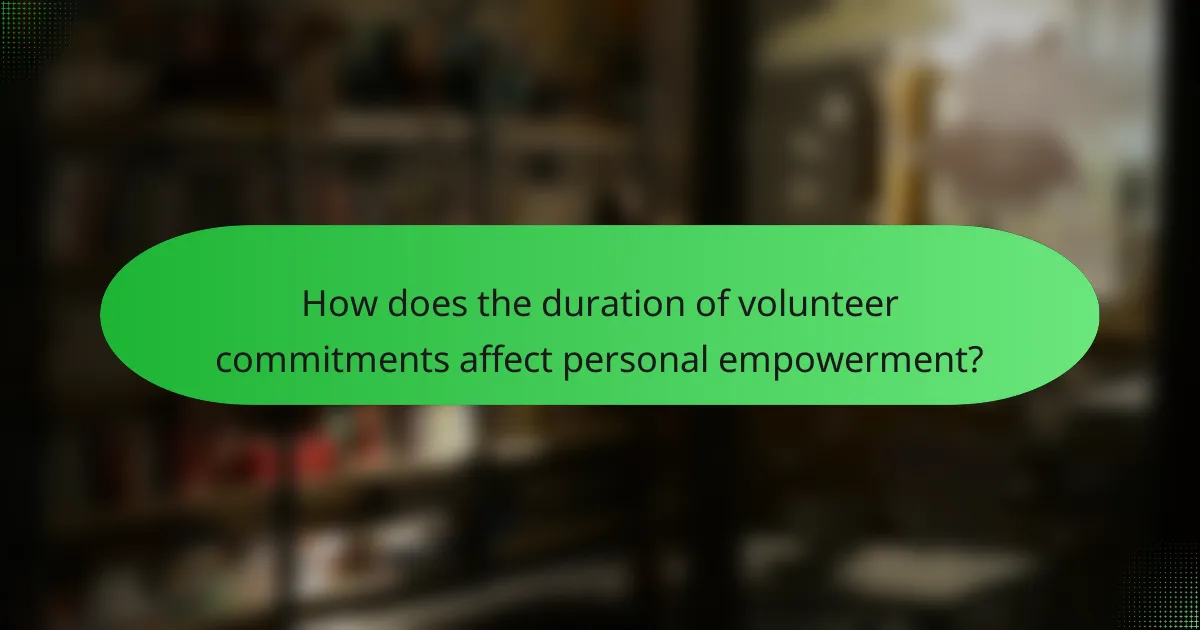
How does the duration of volunteer commitments affect personal empowerment?
The duration of volunteer commitments significantly enhances personal empowerment. Longer engagements foster deeper connections and skill development, leading to increased confidence and a sense of agency. Research indicates that volunteers with extended commitments report higher levels of personal growth and community impact. This sustained involvement cultivates leadership skills and a stronger sense of belonging, ultimately empowering individuals to effect positive change in their communities.
Why do short-term versus long-term volunteering experiences yield different outcomes?
Short-term and long-term volunteering experiences yield different outcomes due to their varying impacts on community relationships and personal development. Short-term volunteering often focuses on immediate tasks, providing quick benefits but limited depth in community engagement. In contrast, long-term volunteering fosters deeper connections, enabling volunteers to understand community needs and contribute to sustainable change. This sustained involvement enhances personal growth, skill development, and a sense of belonging. As a result, long-term volunteers often experience greater empowerment and community impact compared to their short-term counterparts.
What is the significance of ongoing volunteer engagement?
Ongoing volunteer engagement is significant because it fosters community development and personal growth. It enhances social connections, increases civic responsibility, and promotes skills development. Engaged volunteers often report higher levels of satisfaction and well-being, contributing positively to both individual and community outcomes. Research shows that regular participation in volunteer activities can lead to a 27% increase in life satisfaction. This sustained involvement helps build resilient communities that address social issues effectively.

What unique opportunities exist for volunteers in specific sectors?
Volunteers can find unique opportunities in sectors such as healthcare, education, environmental conservation, and social services. Each sector offers distinct benefits that empower individuals and strengthen communities.
In healthcare, volunteers can assist with patient care, health education, and administrative tasks, enhancing their skills while making a difference. Education-focused volunteers often tutor students or support programs, fostering learning and development. Environmental initiatives allow volunteers to engage in conservation efforts, promoting sustainability and community awareness. Social services offer opportunities to support vulnerable populations, providing critical assistance and advocacy.
These unique roles not only contribute to personal growth but also create lasting impacts on community well-being.
How does volunteering in education differ from volunteering in healthcare?
Volunteering in education focuses on teaching and mentoring, while healthcare volunteering emphasizes patient care and support. Both offer unique empowerment opportunities but differ in their community impact and skill requirements. Education volunteers foster knowledge and skills, while healthcare volunteers address immediate health needs. The commitment duration also varies; educational programs may span longer periods, while healthcare initiatives can be short-term. Each sector cultivates distinct community relationships, shaping volunteers’ experiences and contributions.
What are the benefits of niche volunteering roles, such as environmental conservation?
Niche volunteering roles, such as environmental conservation, offer significant benefits including personal growth, skill development, and community impact. Participants often experience increased self-esteem and a sense of purpose. Engaging in these roles fosters teamwork and leadership skills, enhancing employability. Additionally, volunteers contribute to critical environmental initiatives, promoting sustainability and awareness. Research shows that individuals who volunteer report higher life satisfaction and improved mental health.
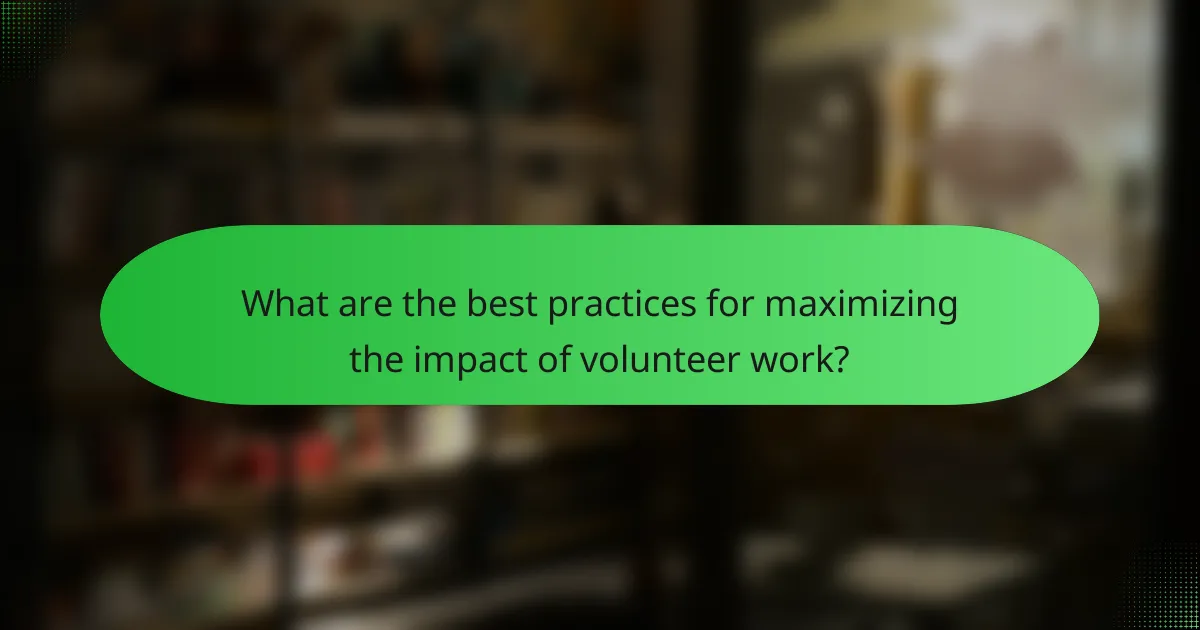
What are the best practices for maximizing the impact of volunteer work?
To maximize the impact of volunteer work, focus on clear goals, effective communication, and community engagement. Establish specific objectives to guide efforts and measure success. Foster open dialogue among volunteers to enhance collaboration and share experiences. Engage with the community to understand their needs, ensuring that volunteer efforts are relevant and impactful. Prioritize training and support for volunteers to develop their skills, which can lead to greater overall effectiveness.
How can volunteers effectively measure their contributions?
Volunteers can effectively measure their contributions by setting clear goals, tracking hours, and evaluating outcomes. Establishing specific objectives allows volunteers to focus their efforts. Tracking hours provides quantifiable data, while evaluating outcomes demonstrates the impact on the community. Regular reflection on these aspects enhances the volunteering experience and fosters ongoing improvement.
What strategies can enhance the volunteer experience for individuals and communities?
Empowerment strategies enhance the volunteer experience by fostering engagement, skill development, and community connection. Providing training opportunities empowers volunteers, increasing their confidence and effectiveness. Encouraging feedback creates a sense of ownership, while recognizing contributions builds motivation. Connecting volunteers with community needs strengthens their impact and satisfaction.
